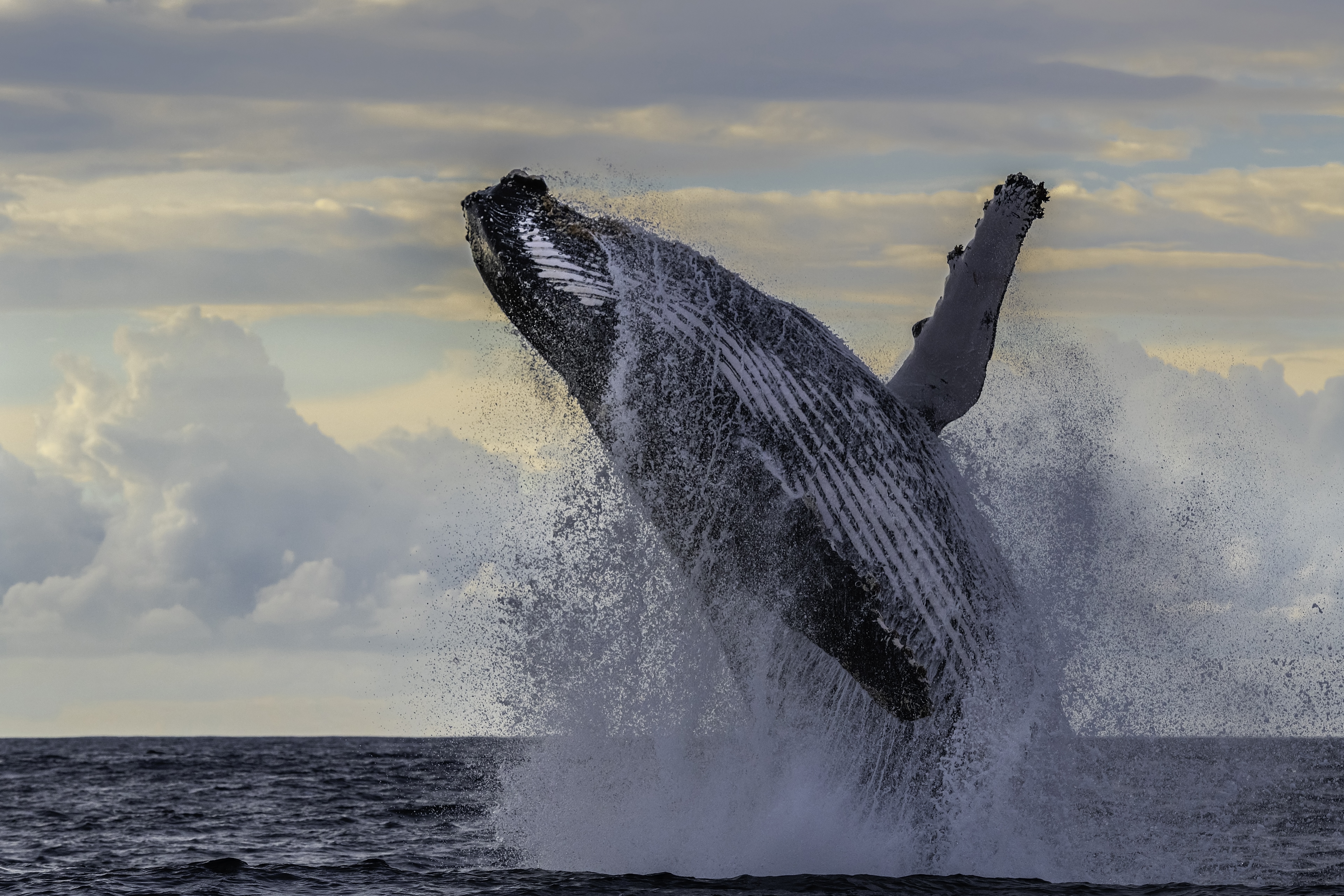Why are humpback whales flocking to the UK?
Humpback whales are typically infrequent visitors to the Cornish coast, but this year they've been spotted in increasing numbers in the South-West, the Isles of Scilly and as far up the Channel as Sussex.


Humpback whales have been photographed breaching off the Cornish coast, in the Isles of Scilly and as far up the English Channel as Sussex.
The giant cetaceans — adult humpbacks can grow to be 56ft long (17m) and weigh up to 40 metric tons, about three-and-a-half times as heavy as a cruise ship anchor — have been putting on a show for unsuspecting walkers, kayakers and fisherman since the New Year, in increasing numbers, despite the fact that their presence in southern UK waters is — or used to be — relatively infrequent.
A post shared by Sussex Dolphin Project (@sussex_dolphin_project)
A photo posted by on
And though numbers in the South-West have been steadily increasing for the last few years, activity — including breaching and fin-slapping — in the eastern Channel is almost unheard of.
Winter is always the best time of year to spot the animals, regardless of where you are, because it’s when they begin to migrate southwards from places such as Norway to warmer waters around Cape Verde where they mate and give birth to their young. To date, sightings in the Channel have been made in Rye, Pett Level, Fairlight, Hastings, St Leonards, Bexhill, Pevensey and Eastbourne. Earlier sightings were also made at Beachy Head, Sussex, and Dungeness in Kent. In a single, 11-day period, there were 17 recorded appearances around the Isles of Scilly alone.
A post shared by Dan Abbott (@sharkman_dan)
A photo posted by on
Dan Abbot, who posts on Instagram under the @sharkmandan handle, captured this drone footage of a humpback whale at Watergate Bay near Newquay, last year.
Scientists are divided over why exactly numbers and sightings have gone through the roof. More positive theories point to booming numbers as the whale population finally recovers from years and years of hunting (by the 1950s, only 450 whales remained); less positive ones blame climate change and overfishing which is forcing the majestic mammals to hunt for food outside of their normal feeding patches.
‘As we discover more about why the whales are here,’ said Abbot in a recent Instagram post, ‘a critical component is that they are able to do what they need to do and not be disturbed. One theory is that they aren’t getting enough food where they are spending the summer, and so need a pit stop on the way north. If that’s the case, the UK has become [a] critical feeding habitat for these whales.’
Exquisite houses, the beauty of Nature, and how to get the most from your life, straight to your inbox.
A post shared by Dan Abbott (@sharkman_dan)
A photo posted by on
A quick sweep on Instagram and various wildlife trust websites throw up plenty more wonderful marine wildlife stories: Last year, a North Atlantic Right Whale (so called because they were the ‘right’ whales to hunt) was spotted off the Irish coast for the first time in 100 years and the revival of Bluefin tuna off the South-West coast in huge numbers has already given the local economy a demonstrable boost.
Rosie is Country Life's Digital Content Director & Travel Editor. She joined the team in July 2014 — following a brief stint in the art world. In 2022, she edited the magazine's special Queen's Platinum Jubilee issue and coordinated Country Life's own 125 birthday celebrations. She has also been invited to judge a travel media award and chaired live discussions on the London property market, sustainability and luxury travel trends. Rosie studied Art History at university and, beyond Country Life, has written for Mr & Mrs Smith and The Gentleman's Journal, among others. The rest of the office likes to joke that she splits her time between Claridge’s, Devon and the Maldives.
